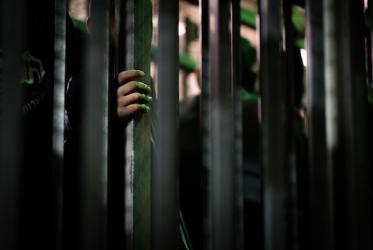Displaying 1 - 20 of 53
Dr Abuom reflects on women of faith as healers of creation
05 October 2021
How racism and colonialism are exacerbating impacts of climate change
29 September 2021
Rethinking Ecological Relationships in the Anthropocene era
11 - 13 February 2021
G20 summit: call to pray for peace in Hamburg
07 July 2017
Plans for 2017 decided by WCC Executive Committee
01 December 2016
Grand Imam calls for collaboration against violence and poverty
06 October 2016
Tveit offers input at religion and development meeting
03 October 2016













